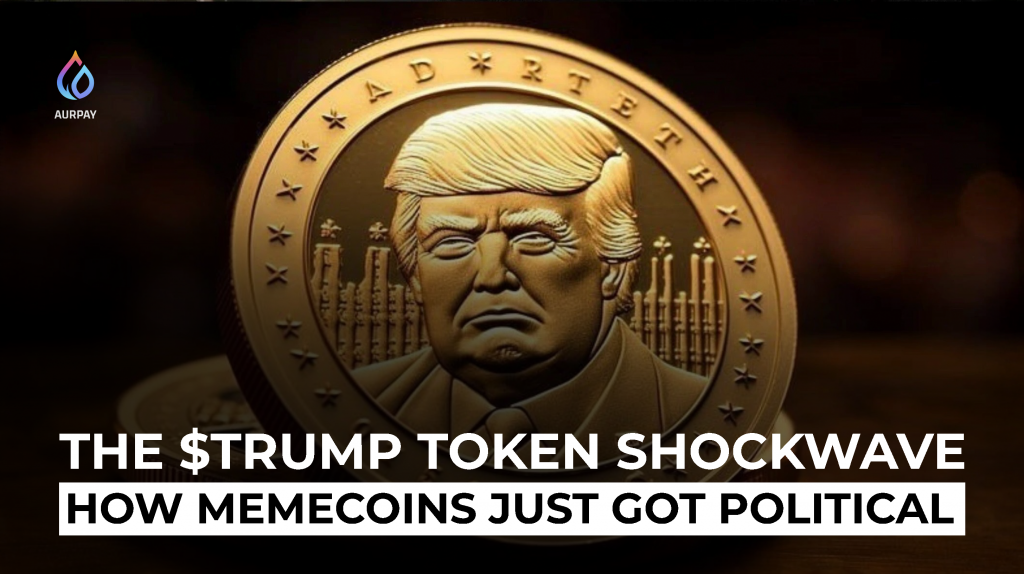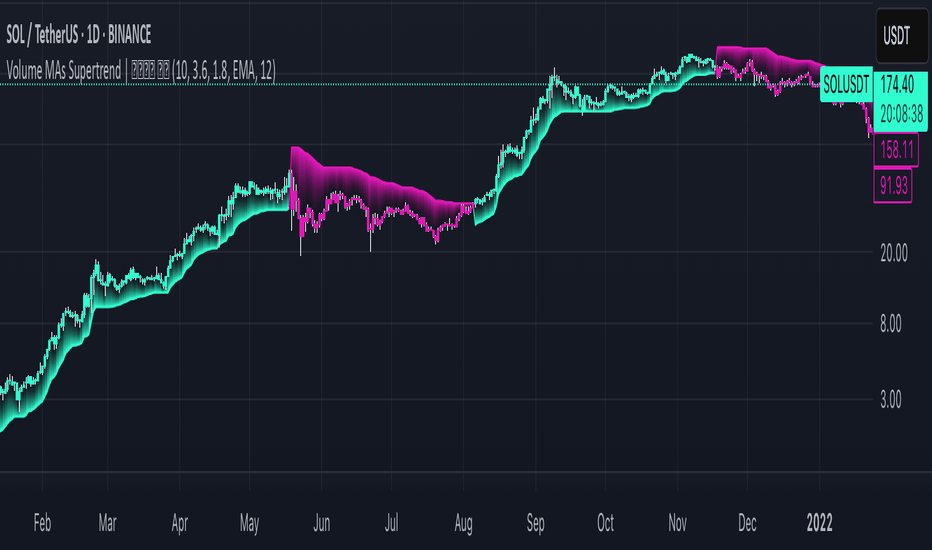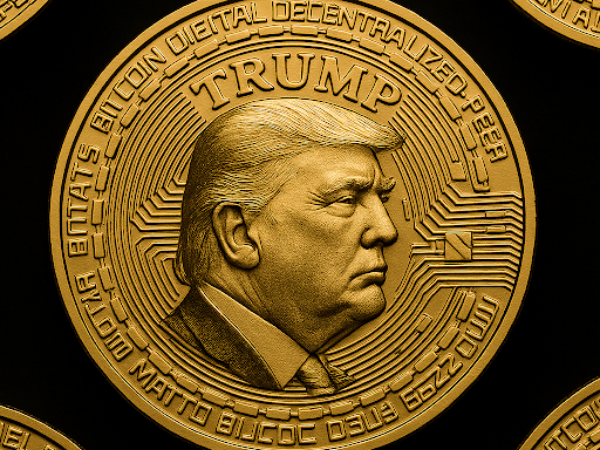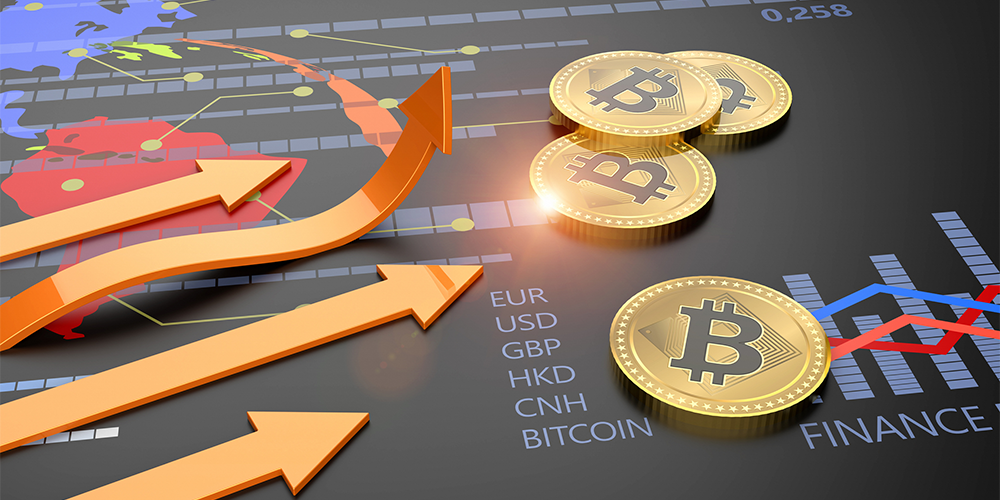The $TRUMP Token Shockwave: How Memecoins Just Got Political

The cryptocurrency world was jolted recently by news that a memecoin—$TRUMP—connected to former President Donald Trump has surged in popularity, raising serious questions about the intersection of politics, pop culture, and blockchain technology. Whether it’s a strategic political move or a volatile publicity stunt, this event marks a pivotal moment where digital assets and political narratives collide.
Memecoins: The Fusion of Finance, Culture, and Politics

Memecoins have transitioned from humor-driven experiments into economic instruments that reflect broader cultural and political narratives. From Dogecoin (DOGE) and Shiba Inu (SHIB) to more radical iterations like $TRUMP, these tokens represent collective sentiment, social movements, and identity-driven finance. What makes $TRUMP unique is its direct political association, creating an unprecedented convergence of crypto speculation, ideological branding, and geopolitical relevance.
Historical Context: How Memecoins Became Cultural Symbols
Dogecoin: The Original Internet Joke That Became a Movement
Dogecoin, launched in 2013, was not meant to be taken seriously—yet its community-first approach made it one of the most successful cryptocurrencies. What started as a satirical response to Bitcoin gained traction due to celebrity endorsements, social media hype, and meme culture.
- Elon Musk’s Influence: In 2021, Musk’s tweets sent DOGE skyrocketing to a market cap of over $80 billion, proving that memecoins thrive on personality-driven narratives.
- Community-Driven Utility: Over time, Dogecoin evolved beyond memes—it became a payment option for Tesla merchandise and was integrated into the Dallas Mavericks’ retail ecosystem.
This highlights that virality alone isn’t enough—a strong community and corporate acceptance can transform meme-driven assets into legitimate financial tools.
Shiba Inu: The Birth of a DeFi Memecoin
Inspired by Dogecoin, Shiba Inu (SHIB) took memecoins to the next level by incorporating Decentralized Finance (DeFi) applications.
- SHIB Ecosystem Growth: Unlike Dogecoin, SHIB built an actual utility layer, including its ShibaSwap DEX and NFT projects.
- Whale Accumulation & Institutional Interest: Hedge funds and retail investors began treating SHIB as a legitimate digital asset, fueling its adoption beyond speculative trading.
This transformation established the trend of memecoins evolving into financial ecosystems rather than existing as mere jokes.
$TRUMP: A Political Memecoin Like No Other
The launch of $TRUMP, a memecoin inspired by Donald Trump’s persona, signifies the intersection of cryptocurrency and political branding. Although not officially endorsed by Trump, the token’s success reflects a deeper movement where finance, ideology, and identity merge.
Why is $TRUMP Different?
Unlike traditional memecoins, $TRUMP thrives on political sentiment and taps into the polarization of global politics.
- Political Branding & Narrative-Driven Investment:
-
-
- $TRUMP’s value is directly tied to Trump’s public perception—policy decisions, speeches, and campaign events impact price movements.
- Unlike Bitcoin or Ethereum, its volatility is dictated by media cycles rather than network utility.
-
- Massive Investor Participation:
-
-
- Within 24 hours of launch, $TRUMP amassed $13.5 billion in market capitalization, surpassing PEPE and SHIB.
- Early investors included right-wing media figures and Truth Social influencers, proving that political affiliation affects crypto speculation.
-
- Exchange Listings & Regulatory Scrutiny:
-
- Major exchanges like Binance, Kraken, and OKX rushed to list $TRUMP due to high trading volume.
- However, regulatory authorities are investigating whether the token violates election finance laws in the U.S.
Memecoins as Socio-Political Movements
Memecoins are no longer just financial instruments—they have become reflections of societal shifts.
Examples of Narrative-Driven Memecoins:
- DOGE: Represents internet humor and embodies community-driven finance.
- SHIB: Reflects the integration of DeFi and NFT ecosystems into meme assets.
- $TRUMP: Introduces political identity into speculative markets.
Memecoins mirror real-world discourse—whether cultural, economic, or political—and have proven that they can influence investor sentiment as strongly as global events.
Risks & Future Implications
While memecoins foster community engagement, their speculative nature introduces key risks:
- Volatility Based on Hype
-
-
- Memecoins lack fundamental utility and rely on social trends, making them extremely unstable.
- Tokens like SafeMoon and Floki Inu saw massive surges in 2021-2022 but collapsed due to lack of developer engagement.
-
- Political & Regulatory Risks
-
-
- As memecoins gain mainstream attention, governments may begin imposing stricter regulations, especially on those linked to political figures.
- $TRUMP, in particular, is being monitored for potential violations of campaign finance laws, which could impact its long-term viability.
-
- Long-Term Viability vs. Short-Term Speculation
-
- For memecoins to survive beyond hype cycles, they must evolve into ecosystems like SHIB did with DeFi and NFT platforms.
- Tokens solely based on hype tend to fade quickly, as seen with MoonCat and BitConnect.
The Market Reaction: Volatility Meets Visibility

The rise of $TRUMP, a politically themed memecoin, has sparked a new wave of market speculation, social discourse, and financial debate. Within days of its surge in popularity, the token experienced a 300% price increase, driven by media coverage, retail hype, and exchange listings. While traditional cryptocurrencies like Bitcoin and Ethereum remained relatively stable, analysts suggest that $TRUMP’s influence extends beyond price movements, reinforcing the growing connection between crypto, culture, and politics.
$TRUMP’s Price Surge: Market Speculation and Social Influence
Memecoins have long been subject to extreme volatility, often driven more by community enthusiasm and cultural narratives than actual financial utility. $TRUMP exemplifies this trend, demonstrating how political branding can fuel investor speculation.
Key Price and Market Movements
- Trading Volume Spikes: Within three days, $TRUMP’s trading volume crossed $7.8 billion, making it the most traded memecoin of early May 2025, surpassing even PEPE and SHIB.
- Price Rally: The token surged 300%, moving from $0.18 to $0.55 per unit, with market capitalization surpassing $13.5 billion.
- Exchange Listings: Binance, Kraken, and OKX quickly listed $TRUMP, adding liquidity and increasing speculation from retail traders.
The combination of exchange adoption, social media momentum, and speculative trading contributed to $TRUMP’s explosive growth.
The Role of Social Media and Narrative-Driven Investment
Memecoins historically thrive on social narratives, and $TRUMP is no exception. Its price surge was fueled by viral discussions across X (formerly Twitter), Truth Social, and Reddit forums.
- Truth Social & X Amplification: Pro-Trump influencers actively promoted the token, with engagement rates doubling within 48 hours.
- Reddit & Crypto Telegram Groups: Posts discussing potential price targets of $1+ gained traction, influencing market sentiment.
- Celebrity Involvement: Prominent figures—including crypto investors and political commentators—expressed support or skepticism, further fueling debate.
Unlike conventional assets like Bitcoin, which derive value from scarcity and institutional backing, memecoins like $TRUMP rely primarily on public engagement. Social trends dictate price movements, making sentiment-driven surges possible—but also short-lived.
Bitcoin and Ethereum: Stability Amid Memecoin Mania
While memecoin volatility dominated headlines, traditional cryptocurrencies like Bitcoin (BTC) and Ethereum (ETH) maintained stability.
Bitcoin’s Market Resilience
- BTC remained in a tight range of $94,000–$97,000, signaling low short-term volatility despite speculation around $TRUMP.
- Analysts note that Bitcoin’s 563-day volatility index hit an all-time low, indicating that institutional investment is anchoring BTC’s price stability.
- Institutional demand remains strong, with hedge funds and wealth managers accumulating BTC as a macroeconomic hedge against inflation.
Why Bitcoin Stayed Stable: Unlike memecoins, Bitcoin’s valuation is anchored in institutional adoption, macro trends, and long-term accumulation. When speculative hype drives memecoin trading, Bitcoin remains relatively unaffected, serving as a store of value amid market turbulence.
Ethereum’s Performance and Layer-2 Growth
- ETH fluctuated between $1,800–$1,850, reflecting minor volatility but overall stability.
- The upcoming Pectra upgrade is expected to enhance staking efficiency and improve Ethereum’s layer-2 scalability, potentially attracting institutional and retail demand.
- DeFi protocols continue expanding, reinforcing Ethereum’s long-term role in smart contract adoption.
Ethereum’s resilience stems from its functionality and network improvements, ensuring that its market activity is driven by technological advancements rather than social speculation.
The Debate: Can Political Affiliation Be Tokenized Responsibly?
Beyond market movements, $TRUMP has reignited discussions on the ethics and implications of political memecoins.
Potential Benefits
- Political Engagement & Crowdfunding: Political-themed tokens could provide alternative fundraising methods, allowing supporters to back candidates in non-traditional ways.
- Narrative-Driven Market Expansion: $TRUMP proves that memecoins aren’t just financial instruments—they represent social and ideological movements.
Risks and Concerns
- Market Manipulation: Reports suggest that 80% of $TRUMP tokens are controlled by Trump-linked entities, raising concerns about centralization and price control.
- Regulatory Scrutiny: Governments are reviewing whether political memecoins violate election finance laws, posing potential compliance risks.
- Speculative Gambling: Unlike established cryptocurrencies, $TRUMP lacks clear utility, making it high-risk for retail investors.
Whether political memecoins can be tokenized responsibly or are simply another speculative bubble remains a critical market discussion.
Regulatory Implications and Ethical Concerns in Political Memecoins

The rise of $TRUMP, a politically themed memecoin, has sparked significant discussions on legality, ethics, and market sustainability. While memecoins thrive on community-driven narratives, introducing political affiliations into the crypto space raises new regulatory questions and financial risks. From investor protection to election law violations, governments, analysts, and market participants are closely monitoring whether political tokens are a new financial tool or simply speculative assets.
Investor Risk: The Danger of Hype-Driven Speculation
Political memes coins like $TRUMP, $BIDEN, or $KENNEDY follow the typical memecoin formula—high volatility, social media influence, and hype-driven momentum. However, unlike Bitcoin or Ethereum, these tokens have no technological infrastructure or intrinsic value beyond their branding.
How Investor Risk Manifests
- High Market Volatility
-
-
- $TRUMP experienced a 300% surge within days—but can easily collapse just as fast.
- Unlike regulated assets, memecoins are purely speculative, leading to extreme fluctuations without fundamental price support.
-
- Potential for Market Manipulation
-
-
- Reports suggest 80% of $TRUMP tokens are controlled by Trump-affiliated wallets, raising concerns about price control and centralized influence.
- This creates an environment where insiders may sell off large amounts of tokens, causing retail investors to absorb heavy losses.
-
- Retail Investors Are at Greatest Risk
-
- Many inexperienced investors fail to recognize memecoins’ speculative nature and treat them like Bitcoin or Ethereum.
- Without due diligence, retail traders may face serious financial losses when hype dissipates.
Investor Protection Measures
To mitigate risk exposure, experts recommend:
- Conducting Research: Retail investors should investigate token distribution, liquidity control, and team affiliations before investing.
- Avoiding Hype-Driven FOMO: Buying based on social media buzz often leads to losses when early investors cash out.
- Understanding Liquidity Risks: Political memecoins may face rapid delistings, leading to liquidity shortages and difficulty selling tokens at market price.
Regulatory Oversight: Are Political Tokens Legal?
The introduction of politically affiliated tokens has caught the attention of U.S. regulators, particularly due to potential misuse in fundraising, election finance, and market manipulation.
Key Areas of Regulatory Concern
- Election Finance Violations
-
-
- If a political token is used to fund campaign activities, the Federal Election Commission (FEC) may investigate whether it violates campaign finance laws.
- Politicians must report donations—and crypto remains a gray area in donation tracking.
- Regulators are concerned that memecoins could be used to bypass transparency requirements.
-
- Market Manipulation Risks
-
-
- The SEC and CFTC are closely monitoring politically linked crypto assets, assessing whether investors are misled into believing tokens have official endorsements.
- If a memecoin is secretly controlled by centralized wallets, the potential for insider trading and price manipulation increases.
-
- Potential for Fraudulent Token Launches
-
- Scammers could mint fake political tokens, convincing investors they are affiliated with candidates or government entities.
- Without strong verification mechanisms, political tokens could lead to large-scale financial fraud.
Regulatory Actions Being Considered
- Election Commission Review: The FEC is assessing how crypto-based fundraising aligns with current regulations.
- SEC Investigations: Political memecoins could be classified as securities, subjecting them to strict compliance rules.
- International Scrutiny: The European Union is discussing whether political crypto assets should fall under MiCA regulations governing financial instruments.
Crypto exchanges listing political tokens may also face stricter compliance checks, potentially leading to delistings if legal risks arise.
Political Influence: The Risk of Polarizing Crypto Markets

Beyond financial concerns, critics argue that political memecoins could turn the crypto space into an ideological battleground.
How Political Branding Impacts Crypto
- Crypto Becoming a Partisan Tool
-
-
- Traditionally, blockchain has been viewed as neutral and decentralized, accessible to all ideological groups.
- Political memecoins may divide crypto users along ideological lines, affecting market sentiment.
-
- Regulatory Overreach
-
-
- Governments could tighten crypto regulations unnecessarily, using political tokens as justification for sweeping restrictions.
- If political tokens trigger financial crimes or election law breaches, regulators may extend scrutiny to all crypto assets.
-
- Retail Investor Manipulation
-
- Political sentiment can override logical investment decisions, leading traders to buy tokens based on beliefs rather than financial analysis.
- If political figures subtly promote a token, it could mislead supporters into investing for ideological reasons rather than profit motives.
Crypto as a Reflection of Political Narratives
Unlike traditional currencies, crypto is highly responsive to cultural shifts. Memecoins associated with political movements may become representations of ideological divides, fueling heated debates over crypto’s role in governance.
The Need for Investor Education and Policy Clarity
The emergence of politically affiliated memecoins like $TRUMP represents an important crossroads in crypto regulation. While they showcase crypto’s ability to mirror cultural and political narratives, they also introduce new financial risks and ethical concerns.
What Needs to Happen Next?
- Investor Education Initiatives
-
-
- Crypto communities should teach retail traders about the risks of memecoins, particularly political ones.
- Exchanges must provide risk disclosures before listing politically themed tokens.
-
- Regulatory Framework Development
-
-
- Governments must establish clearer guidelines regarding political tokens to prevent misuse in election finance.
- Token issuers should be required to disclose affiliations to ensure market transparency.
-
- Balancing Innovation and Ethics
-
- Crypto developers should prioritize responsible token launches, preventing exploitative financial schemes.
- The industry must uphold blockchain’s decentralization principles, ensuring crypto remains an open, unbiased market.
As the crypto sector matures, balancing technological innovation, political influence, and financial responsibility will be critical for long-term adoption.
Conclusion
Crypto is no longer confined to code and charts—it’s now entangled with influence, identity, and ideology. The $TRUMP memecoin is just one example of how narratives shape markets. As participants in this dynamic ecosystem, it’s vital to separate noise from signal and to build responsibly in this new age of tokenized expression.
Stay ahead of the trends and make informed moves in your crypto journey. Follow AURPAY for more insights and tools to navigate the evolving digital economy.

